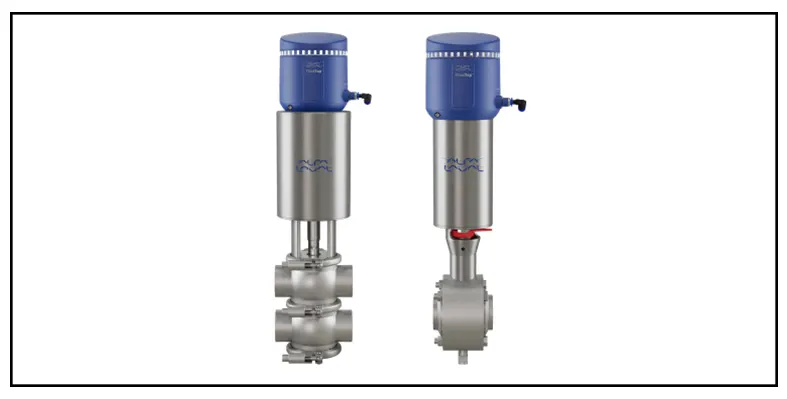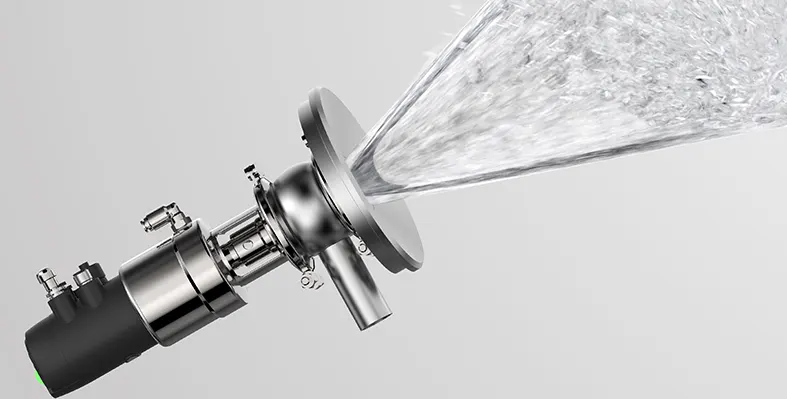
The latest additions to Alfa Laval’s valve portfolio demonstrate their commitment to meeting the evolving needs of industries where safety, efficiency and reliability are paramount. (Image source: Alfa Laval)
Alfa Laval has broadened its range and reaffirmed its commitment to providing reliable, high-performing solutions that ensure safe processing, protect product integrity, and safeguard consumers while addressing the evolving needs of the hygienic industries
The company has introduced the Unique SSV Pressure Relief Valve and the Leakage Detection Butterfly Valve, alongside new smaller sizes of the Unique Mixproof CIP and Unique Mixproof Process valves.
Unique SSV Pressure Relief Valve
When peak performance under pressure is critical, the Unique SSV Pressure Relief Valve protects hygienic processing lines, particularly those with positive displacement pumps, from overpressure. Paired with and powered by Alfa Laval ThinkTop technology for valve monitoring and control, it safeguards process efficiency, productivity and safety. Pressure relief setpoints are easy to adjust onsite to accommodate changing conditions. Built on the proven SSV platform, this modular valve shares spare parts with other Unique SSV valves, simplifying maintenance and reducing service costs. Fully CIP-able regardless of the pressure setting, the valve ensures reliable hygiene and performance while minimising downtime.
Leakage Detection Butterfly Valve
Product safety and efficiency are the hallmarks of this straightforward Leakage Detection Butterfly Valve. When powered by an Alfa Laval ThinkTop for valve monitoring and control, it enhances reliability due to real-time valve monitoring and control. Integrated leakage detection enables rapid response to potential issues, maintaining performance. A single seal, disc and actuator make the valve compact and lightweight while reducing installation, operating, and maintenance costs. Fully CIP-able, the valve guarantees more uptime, continuous operations, long-lasting performance, and energy, water and cleaning media savings.
Alfa Laval is also extending its Unique Mixproof range with two new sizes of the Unique Mixproof CIP and Mixproof Process valves. These smaller double-seat mixproof valves offer high cleanability, pressure resistance, and adaptability to meet diverse hygienic processing needs. With these new sizes, manufacturers can easily integrate more compact CIP skids, valve matrices and dosing lines into hygienic processing lines while maintaining the safety that mixproof valves deliver.
The latest additions to Alfa Laval’s valve portfolio demonstrate their commitment to meeting the evolving needs of industries where safety, efficiency and reliability are paramount. With the Unique SSV Pressure Relief Valve, Leakage Detection Butterfly Valve, and smaller Unique Mixproof CIP and Process Valves, Alfa Laval continues to provide practical, high-quality valves that enhance operational performance across a broad spectrum of applications.









